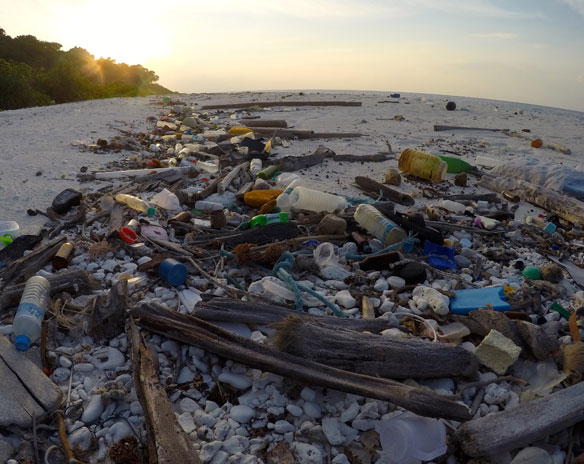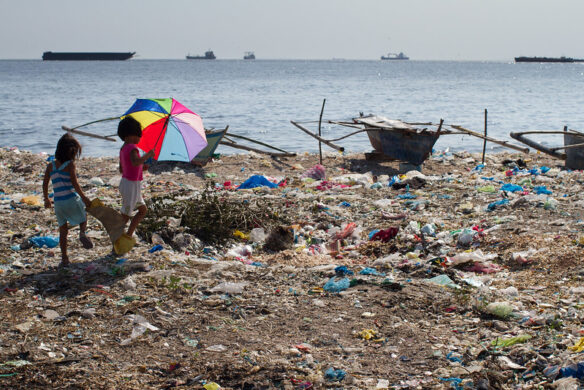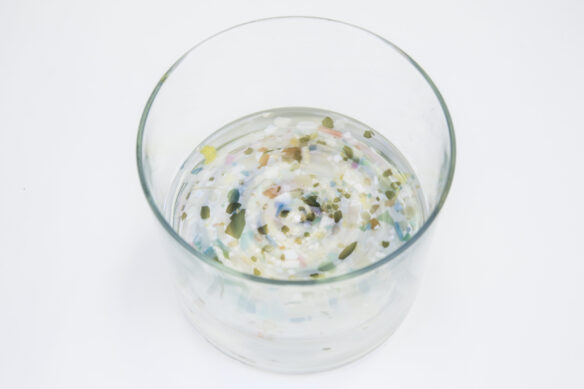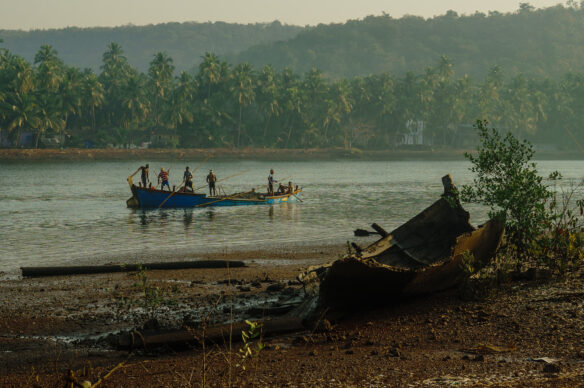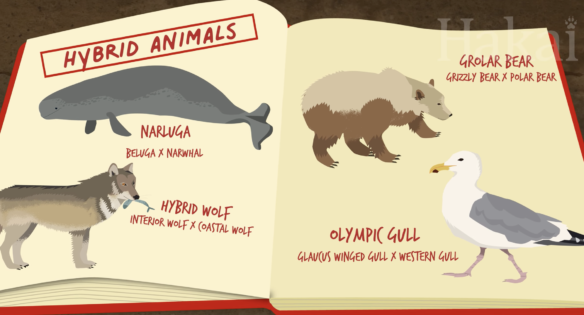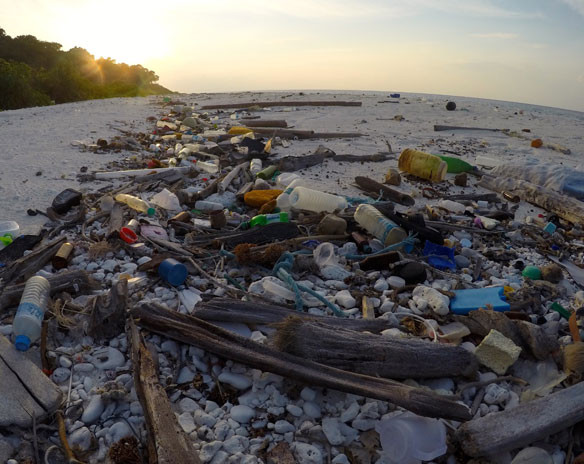
Although inhabited and remote, South Sentinel island is covered with marine debris, mostly plastic. South Sentinel, Andaman Islands, Bay of Bengal. Captions and Photo: © SAF — Coastal Care
Excerpts;
Every minute of every day the equivalent of a garbage truck full of plastic is emptied into the world’s oceans.
In this new three-part series, BBC reporters explore where this gigantic problem is coming from, and what we can all do to try and solve it…
Read Full Article And Watch Video; BBC (06-11-2019)
UN Declares War on Ocean Plastic, UNEP (02-23-2017)
These 10 companies are flooding the planet with throwaway plastic; Greenpeace (10-09-2018)
Nine months, six continents, 239 cleanup events, and more than 187,000 pieces of trash later, we now have the most comprehensive snapshot to date of how corporations are contributing to the global plastic pollution problem…
What are businesses doing to turn off the plastic tap? UNEP (06-28-2018)
More than 8. 3 billion tons of plastics made: Most has now been discarded; Science Daily (07-19-2017)
Humans have created 8.3 billion metric tons of plastics since large-scale production of the synthetic materials began in the early 1950s, and most of it now resides in landfills or the natural environment, according to a study.
Piling up: Drowning in a sea of plastic; CBS News (08-05-2018)
Piece by piece, an environmental threat is piling up, and we’re ALL to blame. Worse yet, even those of us trying to bring an end to the problem may not be doing as much good as we think…
How microplastics, marine aggregates and marine animals are connected; Science Daily (10-23-2018)
New UN report finds marine debris harming more than 800 species, costing countries millions; United Nations (12-05-2016)
Marine debris is negatively affecting more than 800 animal species and causing serious losses to many countries’ economies, according to a United Nations report launched December 5th, 2016…
Plastic Pollution: “When The Mermaids Cry: The Great Plastic Tide,” Coastal Care
Plastic is versatile, lightweight, flexible, moisture resistant, strong, and relatively inexpensive. Those are the attractive qualities that lead us, around the world, to such a voracious appetite and over-consumption of plastic goods. However, durable and very slow to degrade, plastic materials that are used in the production of so many products all, ultimately, become waste with staying power. Our tremendous attraction to plastic, coupled with an undeniable behavioral propensity of increasingly over-consuming, discarding, littering and thus polluting, has become a combination of lethal nature…

